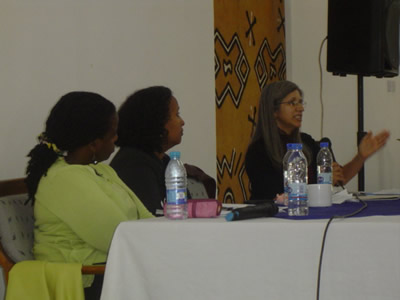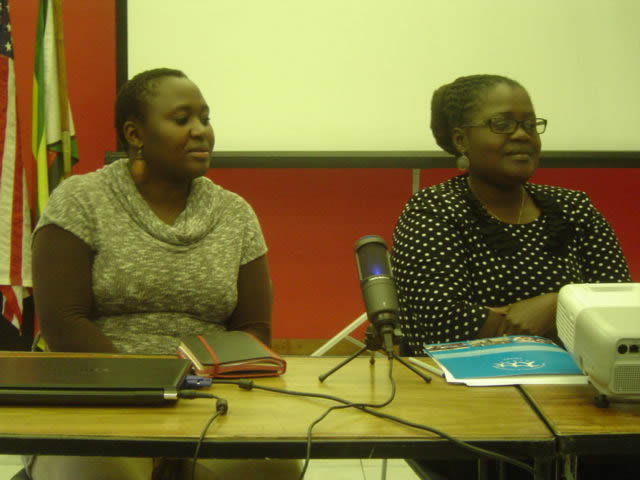Who should be the leaders?
Monday, June 4th, 2012 by Elizabeth NyamudaAn open gender forum organized by UN Women last week, hosted Shamim Meer’s presentation on her research paper titled, ‘Struggles for Gender Equality: Reflections on the place of men and men’s organisation’. The presentation comes at a time where men are organizing themselves to support gender equality. Notably in Zimbabwe is Padare/Enkundleni and Varume Svinurayi/Vhukani Madoda. From the names these two organisations have chosen to use, it reflects much about their agenda in the women rights equality struggle. Shamim paper’s sought to really bring out the agendas of some of these men’s organisations in the struggle for gender equality and explore where men fit in women rights struggles.
Her major concern is that these formal structures being created by men give men a leading role in the struggle for gender equality of which that should not be the scenario – women should lead themselves. She gives a warning to say, “They are operating in a field where women are seen as subordinates and by making men key actors then you could be reinforcing the subordination.” Thus she argues for the separation of men from the women’s struggle. She also mentioned that the depoliticised understandings of gender as ‘men and women’ went further to strain donor relations with existing women’s organisations. As most women organisations are now being asked, ‘If you are working on gender, where are the men in your organisation?’
In her paper, Meers refers to this new idea of donors funding men as the ‘silver bullet’. In the paper she said, “Working with men from the donor’s point of view, could reduce costs to the health care system, and thus meet efficiency goals prioritized by development organisations. This seemed to be the new silver bullet, which would give ‘more bang for the buck!” To Meer the power that men have over women and the possibility that it may not be in men’s gender interests to transform gender relations or achieve greater equality were ignored. Thus clearly spelling out her debate.
It is from this background that she strongly puts out her belief that women need to take back the lead in the struggle. To support this statement she said, “… the oppressed in any system are best placed to lead their own struggle because they know the issues, their active leading challenges the notions on their lack of status and lack of ability.” Support for men in the struggle for gender equality is greatly appreciated but as Meer insisted it should not interfere with who gets to lead the struggle.











